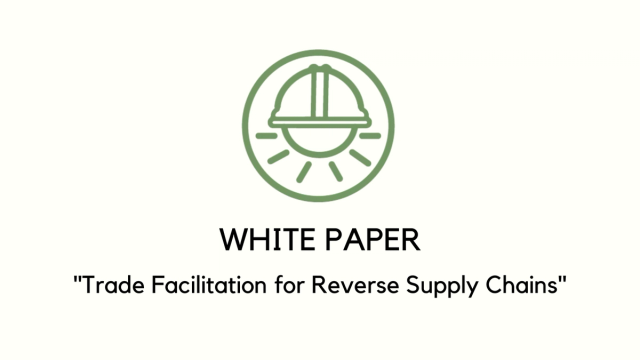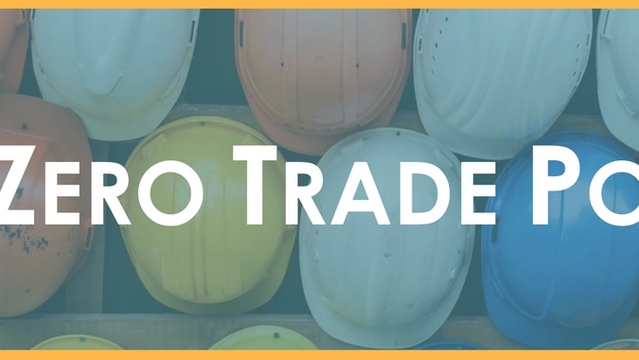
Mahnaz Khan, Andrew David, David Kelm, and Sarah Stewart • Sep 24, 2024
Strategic Defense Critical MineralsStrategic Defense Critical Minerals: A Targeted List for National and Economic Security
What are the benefits of an environmental goods agreement, and how can we get there?

Table of contents
No headers found in content
Author
Silverado Policy Accelerator
Silverado Policy Accelerator
Subscribe to our newsletter
SubscribeWant to stay up-to-date-with all of Silverado Policy Accelerator’s events and initiatives? Sign up for regular email updates here, and never miss news from Silverado.
On Tuesday, Silverado’s co-founder and executive chairman Maureen Hinman joined the Washington International Trade Association (WITA) for its virtual event “Trading For Good,” a panel discussion exploring efforts to increase trade in environmental goods, services, and technologies through bilateral, regional and multilateral trade agreements. The event marked the second installment of WITA’s Trade and the Environment Series, a multipart event series co-sponsored by Silverado Policy Accelerator examining issues at the intersection of international trade and the environment.
Hinman moderated a wide-ranging discussion between three esteemed trade experts: Mark Linscott, the former assistant U.S. Trade Representative for South and Central Asian Affairs and a senior fellow at the Atlantic Council; Sarah Thorn, senior director of global government affairs for Walmart; and Ambassador Vangelis Vitalis, New Zealand’s deputy secretary for trade and economics at the Ministry of Foreign Affairs and Trade. The event attracted a broad audience, including current and former government officials, academics, industry representatives, foreign envoys, and non-governmental stakeholders.
The panelists focused in particular on potential paths toward a new agreement to expand market access for environmental goods following the collapse of plurilateral negotiations at the World Trade Organization (WTO) in 2016.
Ambassador Vitalis argued that the Asia-Pacific Economic Cooperation (APEC), which accounts for 60 percent of total global GDP, can play a vital role in laying the groundwork for a future agreement by building off the 2011 APEC 54 list. Vitalis said that New Zealand, APEC’s host nation this year, is hoping to begin building broad support for an expanded list of environmental goods, an issue that proved a fatal sticking point in the WTO negotiations.
“Given that APEC is both consensus-based and voluntary, we think that it’s an opportunity to develop a longer and more ambitious list, and then we hope that APEC economies will want to take that to Geneva as a contribution to the process there, and also for [other nations] to think of it as a reference point,” he said. “In the APEC context, it’s very much a ‘define-by-doing’ [mentality] … We’ve very conscious of how long it takes to negotiate [a list], so we’re very anxious to avoid a protracted process.”
Linscott raised the possibility that future negotiations could move forward without China at the table — an option which was seen among trade experts as unlikely in the past, but which has gained some traction following the collapse of the 2016 negotiations, largely as a result of China actions.
“The question is, should China be at the table?” said Linscott. “Certainly there’s a free-rider problem if China is out, but given [past] experience, with China in, do we ever get to an agreement?”
Linscott also argued that an interim agreement on environmental goods could potentially provide a stepping-stone toward a broader agreement — an option that Hinman proposed in a recent op-ed for WITA — but noted that such an approach could run afoul of WTO principles.
“I think [an interim agreement] prompts a necessary discussion in the tariff world about the implications of [the most favored nation principle],” he said. “There’s this knee-jerk reaction that we have to protect that principle, but when there are concerns about free-riders — and one in particular — it should prompt healthy debate on the approach going forward.”
On the business side, Thorn presented Walmart’s case for a new environmental goods agreement, arguing that companies like Walmart would benefit from a trade agreement that lowered the costs of the green technologies that large companies need to meet their own environmental goals. Thorn also argued that there is broad-based support for a new agreement in the business community, noting that companies like Walmart have recognized that expanding access to green goods and services is not only the ethical path forward, but is also good for business.
“For us, this is about supply chain resilience and supply chain sustainability,” said Thorn. “We can’t just exhaust people and planet. We have to be thinking about how we’re going to renew if we’re going to be around in another, twenty, fifty, one hundred years.”
All participants said they were encouraged by U.S. Trade Representative Katherine Tai’s recent comments on trade and the environment, in which she made a strong case for using trade policy to advance climate objectives but stopped short of delineating specific trade measures the United States supports.
“Traditionally, in order to get things done on trade and the environment, we’ve needed U.S. leadership,” said Ambassador Vitalis. “It’s all well and good for the keen, goody-two-shoes countries like [New Zealand] to say, ‘We need to get something done on trade and the environment’ … but we really do need U.S. leadership, U.S. engagement, and the U.S. leaning in to really drive this agenda forward.”
Linscott said he is optimistic that the Biden administration will push for renewed environmental goods negotiations.
“During the Obama administration, [officials] were following very closely the negotiations on environmental goods, and they were big cheerleaders for efforts to get a trade agreement that would have some benefits for the diffusion of environmental technologies,” he said. “Some of those people are still around and are working for [United States Special Presidential Envoy for Climate] John Kerry, so I can imagine there being some degree of excitement for those who do climate negotiations with respect to a new initiative among trade negotiators on EGA — and that’s how it should be.”
Across the board, participants agreed that renewed negotiations would mark a major step forward in the global effort to combat climate change — although it remains too early to tell whether they will take place in APEC, the WTO, a bilateral or regional forum, or in all of the above.
“Let’s not pretend that trade is going to be the silver bullet to solve climate change, but trade can make a contribution,” said Vitalis. “I think that’s a very powerful message to our societies: trade is actually part of the solution here, not part of the problem.”
A video recording of “Trading For Good” can be found here, and please visit WITA’s website or follow Silverado Policy Accelerator on Twitter and LinkedIn for information on the upcoming events in WITA’s Trade and Environment Series.
Explore more insights and analysis from our research team.

Mahnaz Khan, Andrew David, David Kelm, and Sarah Stewart • Sep 24, 2024
Strategic Defense Critical MineralsStrategic Defense Critical Minerals: A Targeted List for National and Economic Security

Silverado Policy Accelerator • Jun 22, 2023
White Paper: "Trade Facilitation for Reverse Supply Chains"A white paper by Silverado's Maureen Hinman and Adina Renee Adler exploring trade tools to facilitate the creation of reverse supply chains.

Silverado Policy Accelerator • Dec 04, 2023
Net Zero Trade Policy: A Compendium of Technical NotesA compendium of technical notes outlining policy design criteria and the optimal approach to achieving commercial and decarbonization goals for traded goods.